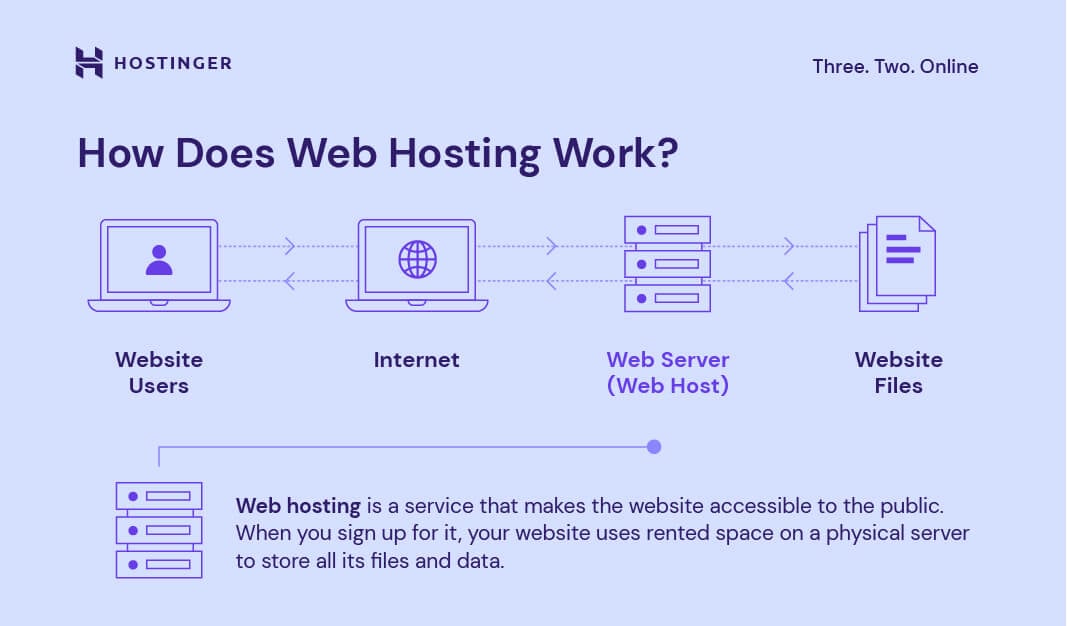Web Hosting Explained
Web hosting is a crucial part of having a website. Whether you are a small business owner looking to establish an online presence or a blogger wanting to share your thoughts with the world, you’ll need a reliable web host to make your website accessible to the public. In this article, we will explain what web hosting is, how it works, and the different types of web hosting available.
What is Web Hosting?
Web hosting is a service that allows individuals and organizations to post a website or web page onto the internet. A web hosting service provider is a business that provides the technologies and services needed for the website or webpage to be viewed on the internet. Websites are hosted, or stored, on special computers called servers.
When Internet users want to view your website, all they need to do is type your website address or domain into their browser. Their computer will then connect to your server and your web pages will be delivered to them through the browser.
How Does Web Hosting Work?
Web hosting works by storing your website files on a server. When someone types in your domain name, the server delivers those files to the visitor’s browser. Your website is essentially a collection of files and images that are served to the visitor when they access your domain.
Web hosting companies provide the infrastructure and services that allow your website to be viewed on the internet. They offer different hosting plans that cater to different needs and budgets. Some of the common features of web hosting services include domain registration, email accounts, SSL certificates, and website builders.
Types of Web Hosting
There are several types of web hosting available, each with its own set of features and benefits. Understanding the different types of web hosting will help you choose the right one for your website.
Shared Hosting
Shared hosting is the most common type of hosting. With shared hosting, your website shares server resources with other websites. This is a cost-effective option for small businesses and individuals who don’t expect a high volume of traffic to their website.
VPS Hosting
VPS (Virtual Private Server) hosting is a step up from shared hosting. With VPS hosting, you have your own virtual server that is partitioned off from other users. This allows for more control and customization, making it a popular choice for medium-sized businesses.
Dedicated Hosting
Dedicated hosting gives you complete control over a physical server that is dedicated solely to your website. This type of hosting is ideal for large businesses or websites that require a high level of security and performance.
Cloud Hosting
Cloud hosting is a scalable and flexible hosting option that allows you to use resources from multiple servers. Your website is not reliant on a single server, making it more reliable and secure. Cloud hosting is ideal for websites that experience fluctuating traffic levels.
Conclusion
Web hosting is a fundamental aspect of building and maintaining a website. Choosing the right web hosting provider and plan is essential for the success of your online presence. Consider your website’s needs, budget, and expected traffic levels when selecting a web hosting service. With the right hosting solution, your website will be fast, secure, and accessible to your target audience.
